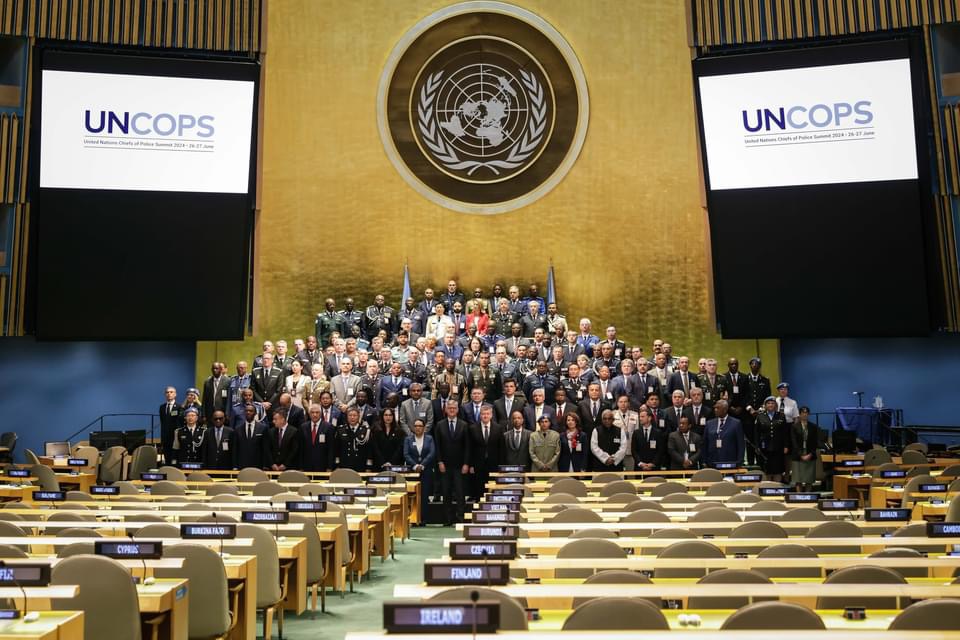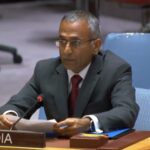India’s Director-General of the Intelligence Bureau, Tapan Kumar Deka, highlighted that in addition to being a major contributor of troops, Indian police force contributions to the United Nations (UN) Peacekeeping Missions around the world remains a priority.
India’s contributing effort includes a Formed Police Unit of 139 personnel, including 11 women in the United Nations Organization Stabilization Mission in the Democratic Republic of Congo. Additionally, India has deployed 11 individual police officers to the United Nations Mission in South Sudan (UNMISS) and one officer to the United Nations Interim Security Force in Abyei (UNISFA).
While speaking on UN policing during the 4th UN Chiefs of Police Summit (UNCOPS), on June 27, 2024, at the UN Headquarters in New York, DG Deka noted “The changing nature of armed conflict, with a surge in intra-State conflicts involving non-State Armed Groups, has increasingly exposed peacekeeping operations to regional and global dynamics that undermine their efforts to implement their mandate.”
He pointed out that maintaining international peace and security has grown complex necessitating stronger peace operations with clear mandates, sufficient resources, and defined exit strategies.
“Our recent experiences have been indicating the fallacy of solutions being imposed from outside. India has always stressed that there can be no substitute for national efforts in creating an environment where civilians are secure” he said. “It is thereby important that conducive conditions are created for local political and social processes to take hold. The eroding support of host nations to the presence of peacekeepers is a reflection of the failure to address the root causes of conflict.”
As the main body responsible for maintaining international peace and security, DG Deka emphasized that it is crucial for the Security Council to undergo reforms, including expanding its membership in both permanent and non-permanent categories. With over half of the Security Council’s efforts directed towards Africa, India has been steadfast in advocating for increased African representation, in accordance with the Ezulwini Consensus and the Sirte Declaration.

“We have also been witnessing conversations on peace enforcement in context of peace operations. While we need to strengthen existing mechanisms, we call for caution on any activity that is rooted in authorization from a Security Council that is not representative of current realities” he said.
According to him, creating the right political environment, and supporting development can help prevent conflict – but conditions should not infringe on the sovereignty of host nations and their stakeholders, especially given the current global mistrust in multilateral systems.
India’s recent experience has unveiled additional insights applicable to its operations, he underscored, while pointing out during deployments in conflict zones, India has encountered divergent “interpretation of mandates between various stakeholders.” This has led to challenges in effectively delivering mandates and created safety concerns for India’s peacekeepers.
“Further complicating the conflict scenarios is the misuse of access to digital and social media which is used to spread misinformation and disinformation. This calls for strategic communication to be strengthened as also creating local awareness on the mandate of the peacekeeping Missions so that there are no misplaced expectations on part of local Government and society,” he added.






